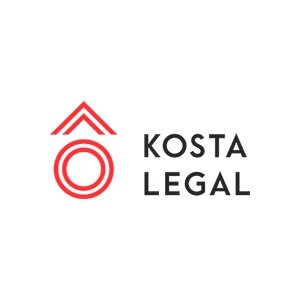Best Energy, Environment & ESG Lawyers in Uzbekistan
Share your needs with us, get contacted by law firms.
Free. Takes 2 min.
Or refine your search by selecting a city:
List of the best lawyers in Uzbekistan
About Energy, Environment & ESG Law in Uzbekistan
Energy, Environment, and Environmental, Social, and Governance (ESG) law in Uzbekistan covers the rules and regulations that govern how businesses and individuals interact with natural resources, the environment, energy industries, and their responsibilities towards social and governance standards. As Uzbekistan continues to modernize and develop its economy, energy and environmental issues become increasingly important. This area of law ensures sustainable development, responsible natural resource management, and adherence to internationally recognized ESG standards. The government of Uzbekistan is taking active steps to promote clean energy, protect the environment, and encourage ethical business conduct, bringing local laws closer in line with global practices.
Why You May Need a Lawyer
Seeking legal advice in the field of energy, environment, and ESG in Uzbekistan is important for both individuals and businesses. Typical situations where legal help may be necessary include:
- Complying with complex energy regulations when investing in oil, gas, or renewable energy projects
- Understanding your obligations under environmental protection laws
- Obtaining necessary licenses and permits for energy extraction, production, or waste management
- Addressing liability for environmental damage or pollution
- Negotiating contracts and joint ventures in large infrastructure and energy projects
- Addressing land use or water rights issues
- Ensuring your company meets reporting and disclosure standards for ESG
- Responding to inspections, audits, or enforcement actions from regulatory authorities
- Dealing with disputes involving government agencies or other private parties
- Advising on best practices in corporate governance and social responsibility
Local Laws Overview
Uzbekistan has a series of laws, codes, and government regulations that apply to energy, environment, and ESG matters. Here are some key aspects to know:
- The Law on the Rational Use of Energy and the Law on Renewable Energy establish requirements for energy efficiency and promote renewable energy sources such as solar and wind.
- The Law on Environmental Protection sets the legal framework for environmental impact assessments, pollution control, and protections of air, water, and land resources.
- Mining, gas, and oil operations are regulated under specialized laws which include requirements for responsible resource use and environmental safeguards.
- Companies above a certain size are increasingly required to disclose information about their environmental and social impacts, in line with ESG principles.
- Various government agencies oversee compliance, including the Ministry of Energy, State Committee on Ecology and Environmental Protection, and sub-agencies.
- International agreements and initiatives, such as those related to climate change, are influencing Uzbek laws and increasing the focus on sustainable practices and transparency.
- There are special requirements for public participation in environmental decision-making for certain projects.
Frequently Asked Questions
What is the scope of environmental protection laws in Uzbekistan?
Environmental protection laws in Uzbekistan cover the use and protection of air, water, soil, forests, and biodiversity. They regulate pollution, waste management, and set mandatory requirements for environmental assessments for certain projects.
Who regulates the energy sector in Uzbekistan?
The Ministry of Energy is the primary regulator for oil, gas, electricity, and renewable energy sources. Other bodies may also regulate specific aspects, such as safety and environmental impacts.
Do I need an environmental impact assessment for my project?
Many industrial, infrastructure, and energy projects in Uzbekistan require an environmental impact assessment before permits or licenses are issued. The requirements depend on the type and scale of the activity.
Are there incentives for investing in renewable energy in Uzbekistan?
Yes, the government offers incentives such as tax benefits, preferential tariffs, and simplified procedures to support renewable energy projects, especially in solar and wind.
What are the ESG requirements for companies in Uzbekistan?
While ESG reporting is not yet mandatory for all companies, large enterprises and those in certain sectors are expected to disclose information on environmental, social, and governance matters. International investors may require enhanced ESG reporting from Uzbek partners.
How is pollution regulated in Uzbekistan?
Pollution is regulated through emissions standards, waste management rules, and permitting. Violations can lead to administrative or criminal penalties, as well as orders to remedy the damage.
What penalties exist for breaking environmental laws?
Penalties can include fines, suspension of operations, orders to restore or remediate the environment, and in serious cases, criminal prosecution of responsible individuals.
How can foreign investors participate in Uzbekistan's energy market?
Foreign investors must comply with national legislation, obtain appropriate licenses, and often partner with local entities. There are special arrangements and incentives designed to attract foreign capital into the energy sector.
Are there public participation rights in environmental decision-making?
Yes, Uzbekistan provides for some level of public participation, especially in the approval process for major projects. Local communities may submit comments and concerns, though the level of participation may vary.
What legal resources are available to help navigate energy and environmental issues?
Specialized legal firms, international organizations, and government agencies provide guidance. Legal assistance can help interpret complex regulations and ensure compliance.
Additional Resources
For those seeking more information or support on energy, environment, and ESG legal issues in Uzbekistan, the following resources can be useful:
- Ministry of Energy of the Republic of Uzbekistan - Responsible for policy and regulation in the energy sector
- State Committee on Ecology and Environmental Protection - Main environmental regulatory authority
- Chambers of Commerce and Industry - Provides support and information for businesses, including legal advice
- Uzbekistan Ministry of Justice - Offers official texts of laws and regulations
- International development organizations - Such as the Asian Development Bank and World Bank, which conduct projects and studies in Uzbekistan
- Local law firms and legal consultants - Have expertise in navigating local regulations and compliance matters
Next Steps
If you require legal assistance in the field of energy, environment, or ESG in Uzbekistan, consider following these steps:
- Define your issue or legal need clearly, including any projects or transactions involved.
- Gather relevant documents, permits, contracts, and correspondence related to your matter.
- Consult with a local lawyer or law firm that specializes in energy, environmental law, or ESG matters.
- Ask about their experience with similar cases and knowledge of local and international standards.
- Request a clear explanation of your legal position, obligations, and potential risks.
- Work with your legal advisor to develop a compliance plan or address any disputes or investigations.
- Keep informed of changes in laws and regulations affecting your sector or activities in Uzbekistan.
Legal matters involving energy, environment, and ESG can be complex but are essential for responsible and sustainable business operations. Professional legal advice will help you manage risks and make informed decisions.
Lawzana helps you find the best lawyers and law firms in Uzbekistan through a curated and pre-screened list of qualified legal professionals. Our platform offers rankings and detailed profiles of attorneys and law firms, allowing you to compare based on practice areas, including Energy, Environment & ESG, experience, and client feedback.
Each profile includes a description of the firm's areas of practice, client reviews, team members and partners, year of establishment, spoken languages, office locations, contact information, social media presence, and any published articles or resources. Most firms on our platform speak English and are experienced in both local and international legal matters.
Get a quote from top-rated law firms in Uzbekistan — quickly, securely, and without unnecessary hassle.
Disclaimer:
The information provided on this page is for general informational purposes only and does not constitute legal advice. While we strive to ensure the accuracy and relevance of the content, legal information may change over time, and interpretations of the law can vary. You should always consult with a qualified legal professional for advice specific to your situation.
We disclaim all liability for actions taken or not taken based on the content of this page. If you believe any information is incorrect or outdated, please contact us, and we will review and update it where appropriate.
Browse energy, environment & esg law firms by service in Uzbekistan
Uzbekistan Attorneys in related practice areas.
Browse energy, environment & esg law firms by city in Uzbekistan
Refine your search by selecting a city.

















